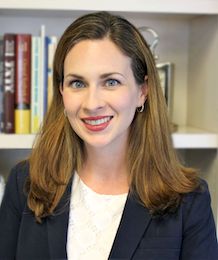Misty Thomas and Morgan Whitlatch: Britney Spears’ experience makes the case for less restrictive alternatives to guardianship and conservatorship
In recent weeks, the world watched as pop star Britney Spears recounted her story of living under a court-mandated conservatorship that, for the past 13 years, has removed most, if not all, autonomy from her personal and professional life. Her experiences have raised concerns in the minds of many here in DC and across the country.
In a June 23 statement to the court, Spears implored a judge in California to end the legal arrangement, declaring, “I don’t feel like I can live a full life.”

Her experience highlights the fundamental civil rights that guardianship and conservatorship can severely restrict or extinguish. In addition to control over one’s own body and reproductive rights, these can include the ability to make decisions about medical, psychiatric and psychological treatment; the medical and legal professionals one can consult; the use of one’s own money; where one can go; and even with whom one can spend free time. Spears’ experience also shows that even people with exceptional financial and professional success can have difficulty getting their rights back from the court once guardianship or conservatorship is established.
While Spears’ case is shedding light on the world of conservatorships and guardianships, much of the public remains unaware that there are other, less restrictive legal options for ensuring that people get the decision-making support they need. Many of these options can be established and maintained without court involvement. Such alternative tools exist in DC, but there is a critical need for increased education in our community about what they are and how to access them. Just as Spears’ situation troubles many observers who consider the arrangement abusive, insufficient knowledge of the available options can result in people outside the public eye ending up in overly restrictive situations.
To that end, in 2019 the Council for Court Excellence published the educational guide, When Adults Need Help Making Decisions and Managing Daily Affairs: A Non-Lawyer’s Guide to DC’s Legal Tools for Assisting Adults. This guide — which was developed in partnership with Quality Trust and other key stakeholders — outlines the wide range of legal tools for adults who need temporary or long-term help making important decisions in their lives. While conservatorship and guardianship are important legal options for some people, they should be used only as a last resort after other alternatives have been carefully considered.
For example, the District of Columbia is one of at least 19 jurisdictions in the country that have passed legislation recognizing “Supported Decision-Making” arrangements, a less-restrictive option that is gaining support among states, federal agencies, national associations and disability rights activists. Supported Decision-Making allows a person to retain their legal rights while getting support from others they select and trust to help them make their own decisions. As Supported Decision-Making gains wider recognition, particularly for people with disabilities and older adults, there is now a DC form that can be used to formalize the arrangement and clarify its scope. For example, these agreements can be used to help people with decisions related to health care, allowing the supporter to get information from doctors and to be present when health care decisions are being discussed or made. Supported Decision-Making Agreements can be coupled with other legal tools, including powers of attorney and advance directives, to provide more planning options that promote a person’s right to make choices.
While Britney Spears’ case underscores the importance of ensuring that protective legal arrangements are appropriately tailored, fairly monitored, and subject to strong due process protections, it also serves as a good reminder that each of us should have a basic understanding of the full range of legal options. Without this awareness, we all may end up flying blind if called upon to support someone whose ability to manage their own affairs is questioned. More public education is needed to promote the broader understanding of and use of decision-making tools that maintain and promote self-determination and autonomy. It is critical that people with disabilities, older adults, and their support networks are fully informed of all the available options so they can work together — ideally in advance of a crisis point — to identify the best fit for the circumstances.
Misty C. Thomas is the executive director of the Council for Court Excellence, a nonprofit, nonpartisan organization that works to enhance the justice system in the District of Columbia so that it serves the public equitably. Morgan K. Whitlatch is the legal director of Quality Trust for Individuals with Disabilities, a DC-based advocacy organization that has been advancing the interests of people with intellectual and developmental disabilities since 2002. She also leads Quality Trust’s Jenny Hatch Justice Project, which provides free legal services to low-income DC residents who are in or facing overbroad or undue guardianship.
About commentaries
The DC Line welcomes commentaries representing various viewpoints on local issues of concern, but the opinions expressed do not represent those of The DC Line. Submissions of up to 850 words may be sent to editor Chris Kain at chriskain@thedcline.org.



Comments are closed.